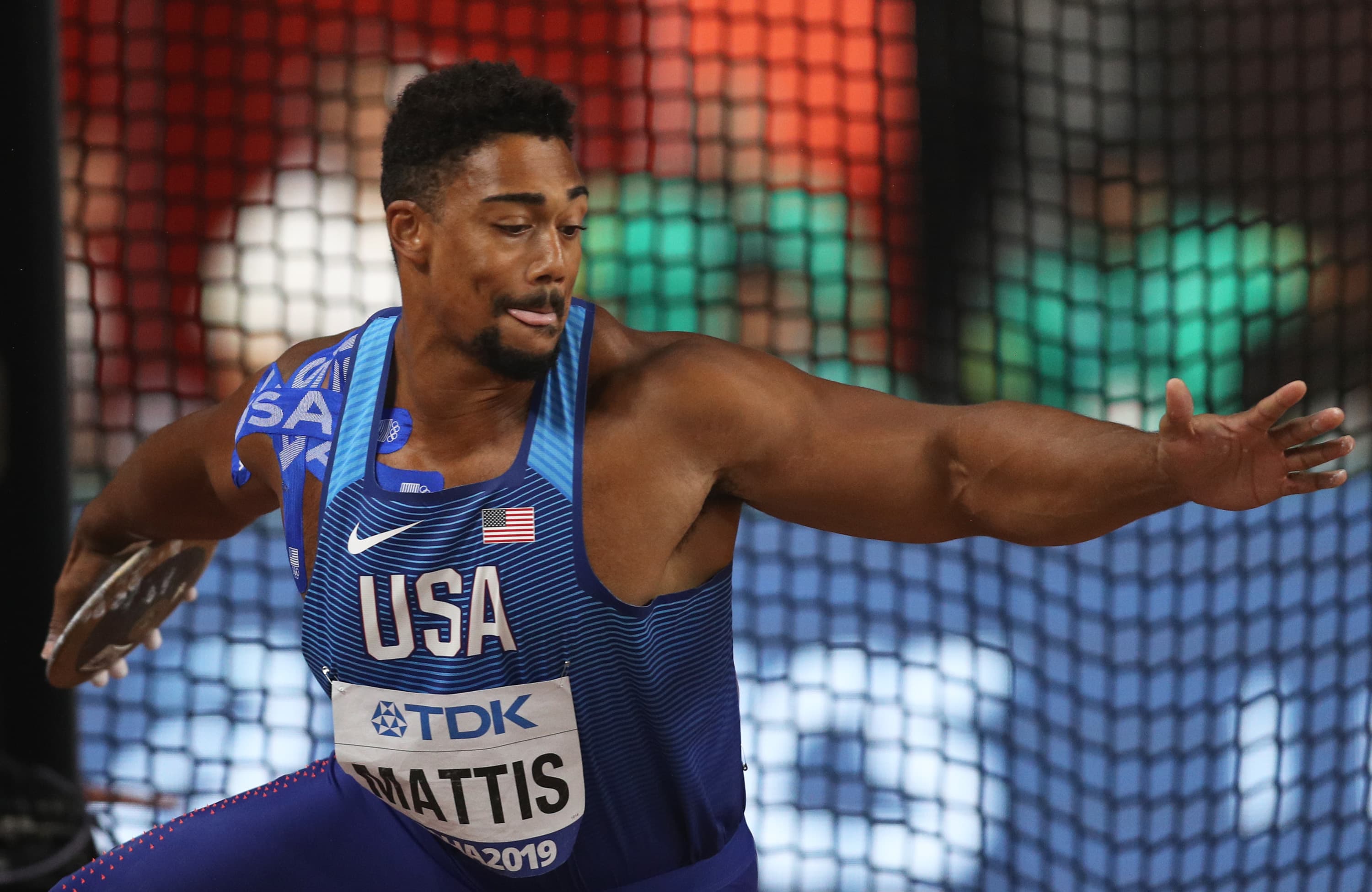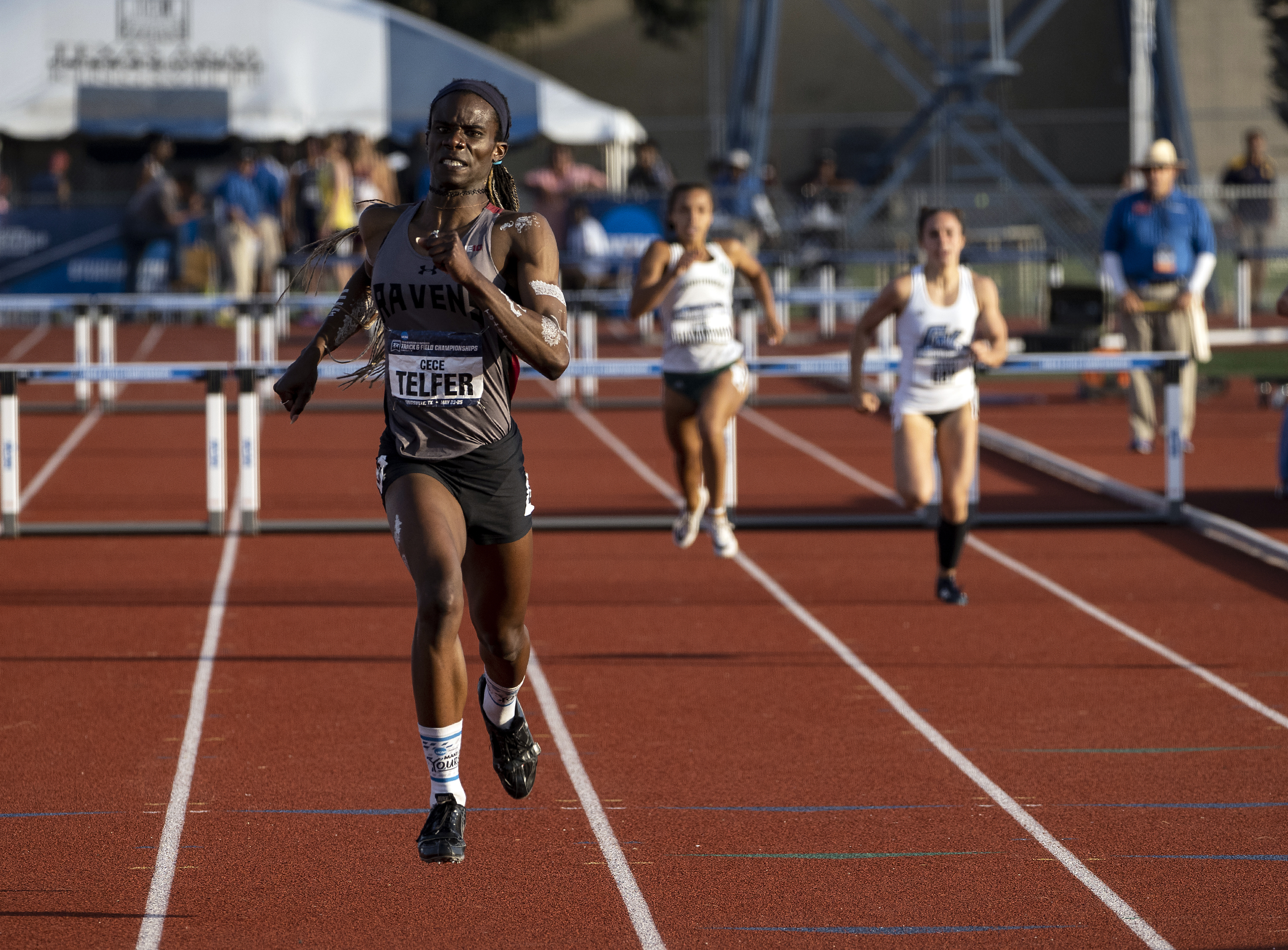Olympic hammer thrower Gwen Berry made headlines for more than just qualifying for the Tokyo Games over the weekend and she took to Twitter to respond to scrutiny surrounding her podium moment.
At the U.S. Olympic track and field trials Saturday, the outspoken activist, who was born in Illinois and attended Southern Illinois University, was standing on the podium after receiving her bronze medal in the hammer throw when the anthem started to play.
While the music played, Berry placed her left hand on her hip and shuffled her feet. She took a quarter turn, so she was facing the stands, not the flag. Toward the end, she plucked up her black T-shirt with the words “Activist Athlete" emblazoned on the front, and draped it over her head.
“I feel like it was a set-up, and they did it on purpose,” Berry said of the timing of the anthem. “I was pissed, to be honest.”
Feeling out of the loop? We'll catch you up on the Chicago news you need to know. Sign up for the weekly Chicago Catch-Up newsletter here.
She found it to be no matter of coincidence that she was front and center during the anthem. Unlike the Olympics, they don't play anthems to accompany medals ceremonies at the trials. But the hammer throwers received their awards just before the start of the evening session, which has been kicking off all week with a video rendition of "The Star-Spangled Banner” played on the scoreboard.
USA Track and Field spokeswoman Susan Hazzard said “the national anthem was scheduled to play at 5:20 p.m. today. We didn't wait until the athletes were on the podium for the hammer throw awards. The national anthem is played every day according to a previously published schedule.” On Saturday, the music started at 5:25.
“They said they were going to play it before we walked out, then they played it when we were out there,” Berry said. “But I don't really want to talk about the anthem because that's not important. The anthem doesn't speak for me. It never has.”
Berry's reaction to the “Star-Spangled Banner” took its fair share of the spotlight on a blazing-hot second-to-last day at trials that also featured some blazing-fast times.
Berry addressed both criticism and support on Twitter Sunday evening.
With temperatures reaching 101 degrees on the field, Berry earned her spot and her platform at the Tokyo Olympics, grabbing the third spot by a scant 2 inches over Janee Kassanavoid.
Berry has promised to use her position to keep raising awareness about social injustices in her home country.
More Tokyo Olympics Coverage
“My purpose and my mission is bigger than sports,” Berry said. “I'm here to represent those ... who died due to systemic racism. That's the important part. That's why I'm going. That's why I'm here today.”
Berry's gestures drew virtually no reaction from the still-filling stands. And they were something far less than two summers ago, when she raised her fist on the podium after winning the Pan-Am Games.
That demonstration led to a sanction, but ultimately pushed the U.S. Olympic and Paralympic Committee to commit to not punishing athletes who raise fists or kneel at the trials or in Tokyo. It's a potential flash point for Tokyo, where the IOC has said it will enforce its Rule 50 that bans demonstrations inside the lines. It's the same prohibition that got sprinters Tommie Smith and John Carlos sent home from the Mexico City Games in 1968.
Now, Berry will be heading to her second Olympics, and she saw what it will take to earn anything close to a similar moment in Tokyo.



